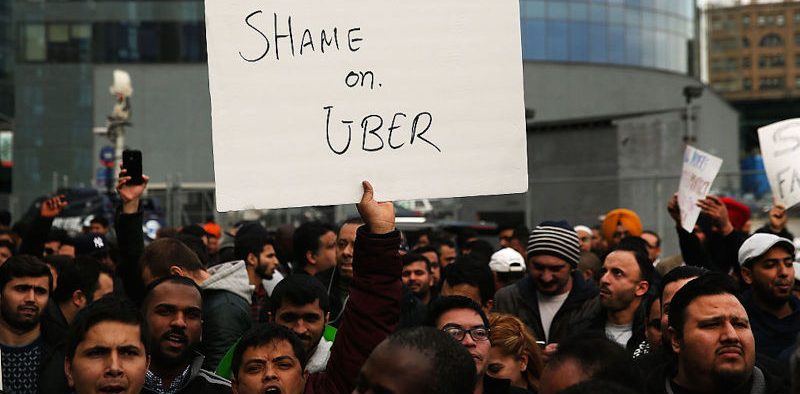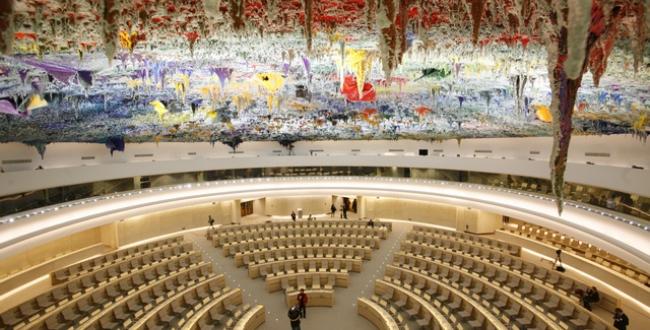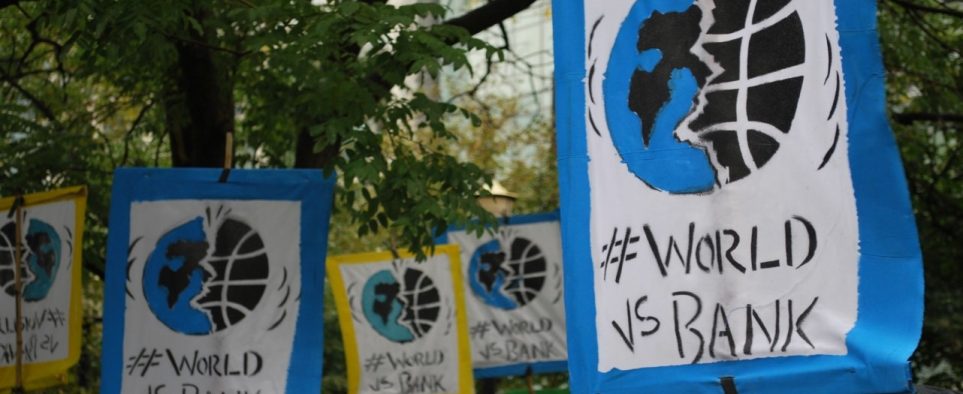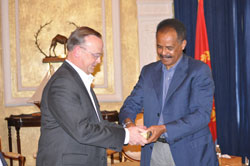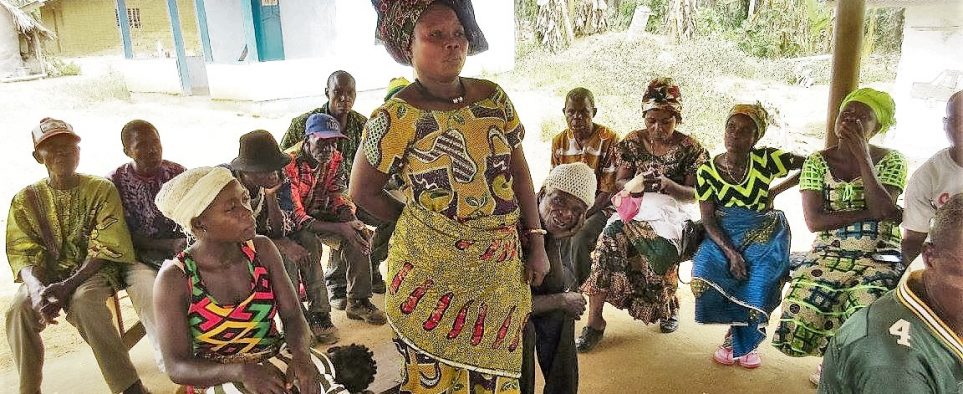All the press about companies and the “Muslim Ban” have missed a deeper story. Corporations involved in implementing the ban have been almost entirely silent about it.
That’s why NomoGaia has reached out to 57 of the largest. Our list includes telecom companies, hotel companies, IT intelligence gathering companies and others that take billions of dollars in contracts from the Department of Homeland Security (DHS) every year to implement DHS programs.
Business and the Muslim Travel Ban
Corporate leaders have been notably visible in the debate over President Trump’s Executive Order restricting travel to the US from seven majority-Muslim nations. UBER lost 200,000 subscriptions in less than a week, after its CEO was perceived to be supportive of the President’s action.
Facing public pressure, he has since withdrawn from an advisory panel, donated $3 million to a legal fund to support immigrants and refugees affected by the ban, and signed Uber on to a legal brief opposing the ban.
That legal brief has been signed by 97 companies, noting that “immigrants or their children founded more than 200 of the companies on the Fortune 500 list.”
The brief does not note that some of those companies, including Boeing and AT&T, are also major contractors to the Department of Homeland Security, which is the department predominantly tasked with implementing the ban.
Is Doing Business with DHS a Violation of Human Rights?
That puts Boeing and AT&T, and the thousands of other companies contracted by DHS to run its operations, in a tricky position. They are beneficiaries of DHS largesse, they carry out or facilitate much of DHS’s work, but they have human rights policies that obligate them not to violate rights.
There is no legitimate argument that the travel ban respects human rights. The High Commissioner on Human Rights and a large collection of Special Rapporteurs on human rights have made the case directly. The law suits against the Travel Ban Executive Order also hinge on questions of discrimination, injustice and freedom of religion.
What Companies are Actually Doing to Avoid Complicity in Human Rights Abuses from the Travel Ban
NomoGaia has reached out to 57 of the Department of Homeland Security’s largest contractors, asking them to weigh in on their responsibilities in the face of the ban.
We will publish our results next month. In the meantime, a preliminary review of public statements reveals something notable: of the thousands of companies doing business with the Department of Homeland Security, only Microsoft and HP have spoken out directly in opposition to the Travel Ban. Yet HP did not join the 97-company Amicus Brief opposing the ban. Neither did major DHS contractors IBM, AT&T, Boeing or Verizon.
Microsoft alone has put its words into action, signing on to directly support the Washington Attorney General’s law suit against the Executive Order.


